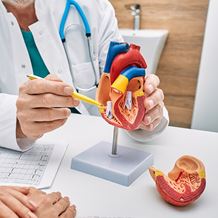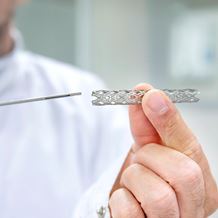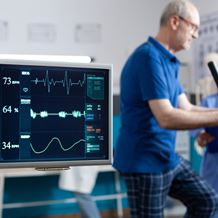Heart Stents Recovery
Recovery from heart stent surgery will depend upon the severity of the condition, and the age, health and wellbeing of the patient coming into the operation. Taking an active role in your own recovery is crucial to optimising the benefits of surgery, and our specialist rehabilitation team are here to support you at every step as you journey back to health. Please ask about our dedicated cardiac rehabilitation program that you can access through your hospital.
Home preparation for Coronary Artery Bypass Surgery
A good recovery program starts with preparing for your discharge from surgery. Make sure you have organised someone to pick you up from hospital, and that your home is set up for your return. Patients are encouraged to take time to rest after surgery and allow the coronary artery some time to recover from the stenting procedure. Although the recovery time after heart stent surgery is relatively quick ranging from a few days to one week, patients are encouraged not to rush back into work or daily tasks until advised by the doctor. Home preparation may include:
- A recovery area where you can rest and elevate your leg if needed
- Keep all necessary items accessible such as your phone, TV control and book
- A clear floor space where you can easily move around
- Help with the daily tasks while you recover
- Advance food preparation so you don’t need to worry about meals
- Emotional support at hand
Recovering at home from heart stent surgery
Recovery times will vary by patient depending on the number of stents required, and the reasons for the procedure. Once you are discharged from hospital, it’s important to follow the treatment plan as set out by your doctor. You’ll be given a personalised recovery plan that includes instructions for exercise, medication, follow up appointments and ongoing care. On arriving home from hospital, you are likely to feel tired and sore at the incision site (either in the groin or the wrist), symptoms which typically subside within two weeks. Your doctor may recommend that you attend a cardiac rehabilitation program to help with your general recovery from surgery. Here you will benefit from a team of trained healthcare professionals including doctors, nurses, dieticians, physiotherapists, and social workers that will all guide you through the recovery period. This dedicated team will help evaluate your personal needs, including any emotional support you may require after surgery, as well as talk to you about the tools and strategies that aim to get you back to a healthy and active lifestyle. These include:
- Any risk factors – such as smoking, diet and anxiety or depression
- Medication requirements
- What to expect at each stage of your recovery
- How your family and friends can support your rehabilitation
- How to meet your personal recovery goals
Medications required after heart stent surgery
After heart stent surgery, patients are generally given medication that will lower the risk of any complications or future cardiac events. The medication aims to stop blood clots forming, reduce cholesterol levels and control high blood pressure. These work best in conjunction with a holistic approach to health that includes a nutritional diet and regular exercise.
What to look out for at home
Talk to your medical team at once if you experience any of the following:
- Persistent bleeding, soreness or swelling at the catheter insertion site (either wrist or groin)
- Any chest pain or shortness of breath that doesn’t go away
- Any dizziness, fainting or fatigue
- Fever
- Coughing up mucus
Average Recovery Timeline
Days 1-2
- Monitor your catheter insertion site and watch for signs of swelling or infection
- Keep the wound clean and dry
- Rest for the first few days while you recover from surgery
Days 3-6
- Avoid any heavy lifting or strenuous activities
- Any bruising and discomfort should start to subside
- Slowly increase your walking distance
- Avoid standing for longer than 20 min periods
Week 2
- Driving is now permitted on the advice of your doctor
- Any commercial driving may require further testing and approval
- Continue to increase your walking distance
- Talk to your doctor about returning to work
- Your doctor may recommend attending cardiac rehabilitation
Heart Stents Surgery Recovery FAQs
What's next?
If you have been experiencing heart-related symptoms, book an appointment with our cardiac services specialist today.
Our specialists in Cardiac Services
View all specialists
Related content

Cardiac Services
Cardiology services at St Vincent’s Private Hospitals, advanced cardiac care.
Read More
Coronary Angioplasty and Stents
A surgical procedure to create more space inside narrowed arteries and restore blood flow.
Read More
Recovery
Cardiac recovery and rehabilitation programs are designed to help you after surgery.
Read More


